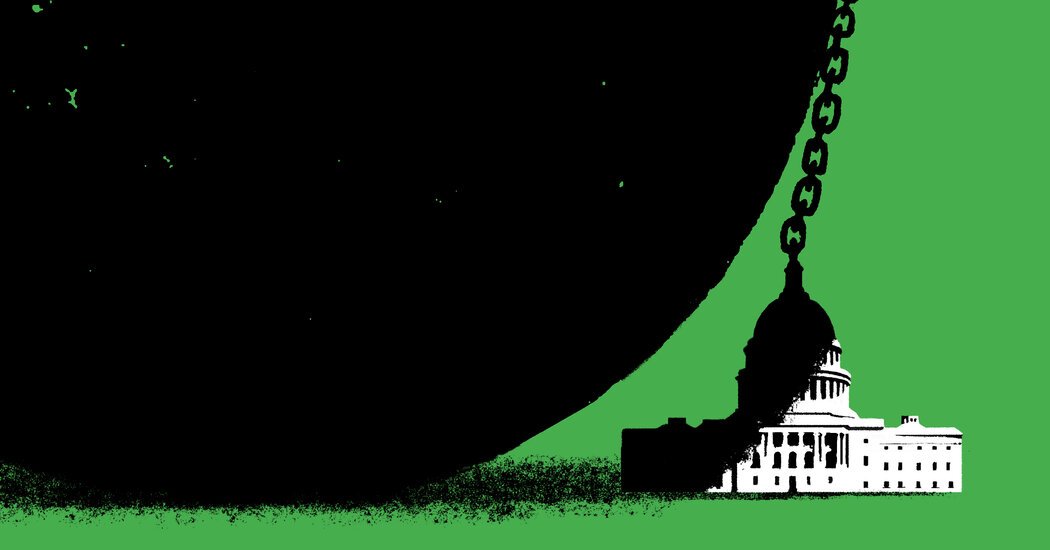
Tracing Collapse: The Quirky, Unfinished Tale of America’s Economic Twilight.
Posted in :
America’s decline isn’t a sudden collapse—it’s the slow unraveling of a system eating itself alive. From soaring debt and privatized services to global dollar erosion and fading democracy, the U.S. is living through the messy twilight of late-stage capitalism. This is more than economics—it’s an existential reckoning.
Offbeat exploration of America’s late-stage capitalism, as dissected by Chris Hedges and Richard Wolff. It merges key Marxist critique, historical detours, policy mishaps, and personal stories to paint a portrait of an empire in self-cannibalization — with surprising analogies and a dash of irreverence.
When a trusted uncle told me in 2008, ‘Don’t worry, banks always land on their feet,’ I believed him. Today, after a string of job relocations among friends, ballooning debts, and the federal office closing in my hometown, I can’t help but squint at that old confidence. What if capitalism really does eat its own — and us along with it? Echoing a recent exchange between Chris Hedges and Richard Wolff, this piece peels back the layers of an economic onion that’s making more than just my eyes water.
Cannibal Capitalism: A System That Eats Itself
If you want to understand the final stages of capitalism, look no further than the United States today. Chris Hedges and Professor Richard Wolff, in their discussion on “The Economics of a Dying Empire,” paint a picture that’s as unsettling as it is familiar. Factories have long since packed up and left for cheaper labor markets overseas. But it’s not just blue-collar jobs anymore—even white-collar, professional roles are vanishing, outsourced, or replaced by machines. Mechanization, once hailed as progress, now quietly erodes job security for millions. The result? A working class in decline and a middle class that’s more mirage than reality.
Wolff and Hedges draw direct lines to Karl Marx’s warnings about late-stage capitalism. Marx argued that, in its final act, capitalism begins to eat away at the very foundations that once made it strong. It’s a system that, when it can no longer expand outward, turns inward—devouring its own institutions, its own people. Or as Wolff puts it:
“Capitalism, in its final act, devours the very institutions that sustain it.”
What does this look like in practice? For starters, the so-called “growth” we see is built on a shaky scaffolding of debt. Personal debt, national debt—both are soaring. The U.S. national debt has now blown past $35 trillion, a figure that’s almost too big to grasp. Meanwhile, the share of global central bank reserves held in U.S. dollars has slipped from a dominant 70-80% forty years ago to just 40-50% today. That’s not just a number; it’s a sign that the world is quietly moving on.
Modern prosperity in America is riddled with debt, even as real wages stagnate or fall. People are told the economy is “booming,” but for most, that “boom” is propped up by credit cards and loans. The middle class, once the bedrock of capitalist society, is now held together by a patchwork of borrowed money and fading security. It’s a mirage—one that can’t last forever.
Research shows that in these final stages of capitalism, the system relies more and more on debt instead of real expansion. Factories and jobs leave, mechanization takes over, and what’s left is a hollowed-out workforce. This isn’t just about economics; it’s about the slow, relentless erosion of the social fabric. Public services like the postal service and education are gutted in the name of “efficiency,” but the real winners are private corporations and the wealthy few.
Politics, too, has become little more than a sideshow. Parties are hollowed out, serving corporate interests rather than the public good. The cycle feeds on itself: as the economic base crumbles, desperation grows, and the system doubles down on the very policies that caused the crisis in the first place. It’s a classic case of late-stage capitalism, where the drive for profit leads to self-destruction—and the decline of both the working class and the institutions that once held society together.
Governments on the Auction Block: The Politics of Privatization
It’s a strange time in America, where the very idea of government expenditures on public services is under attack. The old promise—that government would provide basic goods like mail, education, and health—now feels almost quaint. Instead, these public goods are being auctioned off, gutted, or left to wither, all in the name of “efficiency.” The conversation between Chris Hedges and Professor Richard Wolff, drawing on Marx’s warnings about late-stage capitalism, paints a vivid picture: the system is now cannibalizing itself, and nowhere is this more obvious than in the politics of privatization.
Neoliberalism privatization isn’t just a policy trend—it’s practically a faith. There’s a cartoonish belief that the free market can fix anything, even when it’s clear that market solutions often make things worse. Research shows that privatization of public services weakens essential social infrastructure and mostly benefits corporations, not ordinary people. Still, the dogma persists. Federal employees are turned into scapegoats, blamed for government bloat, while the millions working in state and local government—15 million and 5 million, respectively—are mostly ignored in the debate.
The Trump administration economic policies took these trends to new heights. Attacks on public service weren’t really about saving money. As Hedges and Wolff point out, it was about shifting power and wealth into private hands. Programs like Head Start, the postal service, and public education all faced funding cuts and privatization efforts. The logic? If the private sector can do it, let them—never mind the cracks that start to show in public infrastructure once profit becomes the main goal.
There’s a historical irony here. Decades ago, even conservative leaders like Nixon would step in to stabilize the economy—remember his wage and price freeze in 1971? Today, it’s the opposite. Regulations that took years of public pressure to win are being stripped away, often with little thought for the consequences. The result is chaos: rules change overnight, and the safety net gets smaller. As Hedges puts it,
“Austerity is not a solution, but a transfer of wealth.”
This isn’t just about numbers on a spreadsheet. When social programs dismantling becomes the norm, real people lose out. Head Start and similar initiatives face the axe, and the promise of public education is chipped away. The postal service, once a symbol of national unity, is now threatened by privatization public services schemes that put efficiency over reliability. The cracks in the system are getting harder to hide.
What’s especially striking is how neoliberal dogmas override practical solutions. Instead of fixing what’s broken, leaders double down on privatization—even as evidence mounts that it’s not working. The cycle repeats: public resources are siphoned into private profit, regulations are slashed, and the public is left to pick up the pieces. It’s a quirky, unfinished tale, but the direction is clear: the politics of privatization is reshaping America, and not for the better.
Wild Swings, Global Shifts: The World Reacts to America’s Economic Stumble
It’s easy to imagine the decline of the American empire as some sudden, headline-grabbing collapse. But as Professor Richard Wolff puts it,
‘Decline is rarely as dramatic as we expect — it’s a slow, grinding process.’
That slow grind is playing out now, and the world is watching—and reacting.
The most visible sign? A global power shift that’s moving the economic center of gravity away from the United States. For decades, the U.S. and its G7 allies (Canada, Japan, Britain, France, Italy, Germany) dominated the global economy. But today, the numbers tell a different story: BRICS countries (Brazil, Russia, India, China, South Africa, and their partners) now account for about 35% of global output and over half the world’s population. The G7, by comparison, has slipped to just 27-28% of global output.
This isn’t just a matter of statistics. It’s about where money, influence, and ambition are flowing. Former strongholds of U.S. influence—nations across Asia, Africa, and Latin America—are now looking east, seeking investment from China, India, and Brazil. The global power shift is real, and it’s changing the rules for everyone.
One of the most telling markers of this shift is the slow erosion of the US dollar reserve currency status. Forty years ago, the dollar made up 70-80% of global currency reserves. Now, it’s down to 40-50%. Other currencies—the euro, the yen, the yuan—are stepping in. Even Saudi Arabia is starting to accept payments in currencies other than the dollar for its oil. As historian Alfred McCoy warns, losing dollar supremacy could spell the end of American empire. Wolff, though, sees it as a slow fade, much like what happened to the British pound after World War II.
Meanwhile, economic unpredictability is the new normal. Policy zigzags—especially around tariffs and American manufacturing—have left CEOs and global partners scratching their heads. Tariffs, once a non-starter for conservatives, are now used as political tools, coming and going with little warning. They’re sold as a way to bring back jobs and boost pride in American manufacturing, but the reality is more complicated. Tariffs can trigger retaliation, disrupt supply chains, and create uncertainty for businesses trying to plan for the future.
Research shows that these wild swings and policy reversals don’t just unsettle the markets—they signal deeper problems. The U.S. government, once the architect of global stability, now seems desperate, lurching from one economic experiment to the next. As Wolff and Hedges discuss, this is classic late-stage capitalism: a system that, unable to expand outward, starts cannibalizing itself—cutting social programs, privatizing public services, and hollowing out the very institutions that once made it strong.
In short, the world is reacting to America’s stumble not with panic, but with a quiet, steady shift in alliances and expectations. The decline of American empire isn’t a single event—it’s a process, unfolding in boardrooms, trading floors, and government offices around the globe.
Tangent Time: Mafia Metaphors, Family History, and What the End Looks Like
When Professor Richard Wolff describes America’s current political economy, he doesn’t mince words. He calls it a “mafia economy”—a system where corporate power and state authority have fused so tightly that it’s hard to tell where one ends and the other begins. It’s a metaphor that sticks, especially as the lines between public service and private profit blur, and the rules of the game seem to favor only those at the very top. This is the face of late-stage capitalism, where desperate economic policies and weakened institutions open the door to a new kind of authoritarianism—one that wears a business suit instead of a uniform.
Wolff’s warnings aren’t just academic. They’re personal. He often recalls how his own family fled fascist Europe, and he sees unsettling echoes in America’s present. “My family fled European fascism — and the echoes are impossible to ignore.” It’s a chilling reminder that the personal is always political, and that the lessons of history can come back around in ways we’d rather not imagine. Today’s blend of corporate interests and state power isn’t just a policy debate—it’s a lived reality for millions, and a warning sign for the future of capitalism and democracy.
The conversation between Wolff and Chris Hedges is peppered with sharp analogies and flashes of memory. They point out how every crisis becomes an excuse for another “Hail Mary” policy—usually some form of deregulation, sold as a quick fix but often making things worse. Remember when the FDA was created after The Jungle exposed the horrors of the meatpacking industry? That kind of golden-age regulation is now being chipped away, often at the public’s expense. The cycle repeats: public outrage leads to reform, corporations resist, and then, in the name of “efficiency,” those hard-won protections are dismantled. It’s a pattern that leaves ordinary people more vulnerable each time.
Research shows that when economic policies become desperate and institutions grow weak, society risks sliding toward a form of corporate-dominated authoritarianism. This isn’t just theory—it’s happening now. Public services are gutted, social programs are slashed, and political parties become hollow shells, serving mainly as vehicles for corporate interests. Populist anger is everywhere, but it’s rarely aimed at those truly responsible. Instead, it’s harnessed by leaders who promise easy answers while quietly handing more power to the very forces causing the crisis.
Wolff and Hedges don’t offer easy solutions, but they do offer clarity. The decline of the American empire isn’t a sudden collapse—it’s a slow, relentless unraveling, marked by mounting debt, erratic policies, and a political drift toward fascism corporate power. As the world’s economic center of gravity shifts and the old rules no longer apply, the future of capitalism and democracy hangs in the balance. The story isn’t finished, but the warning signs are everywhere. And if history teaches anything, it’s that ignoring those signs comes at a cost no society can afford.
TL;DR: In short: The U.S. economy’s trouble isn’t just a blip; it’s a symptom of late-stage capitalism’s self-destructive cycle. As institutions are hollowed out, debt piles up, and global power shifts east, America’s decline is a messy, unfinished story — and, perhaps, a warning.
EconomicsOfADyingEmpire, Late-stageCapitalism, FinalStagesCapitalism, RichardWolff, ChrisHedges, CapitalismAnalysis, WorkingClassDecline, GovernmentExpenditures, PrivatizationPublicServices, TrumpAdministrationEconomicPolicies,capitalismself-destruction, U.S.debtcrisis, privatizationpublicservices, RichardWolffeconomicwarning, globalshiftawayfromU.S.dollar
#EconomicsOfADyingEmpire, #LateStageCapitalism, #RichardWolff, #ChrisHedges, #AmericanDecline, #CapitalismAnalysis, #WorkingClass,#Neoliberalism, #PublicServices, #TrumpEconomics, #GlobalPowerShift,#LateStageCapitalism, #EconomicDecline, #RichardWolff, #PrivatizationCrisis, #USDebtCrisis, #AmericanEmpire, #GlobalPowerShift, #CannibalCapitalism

